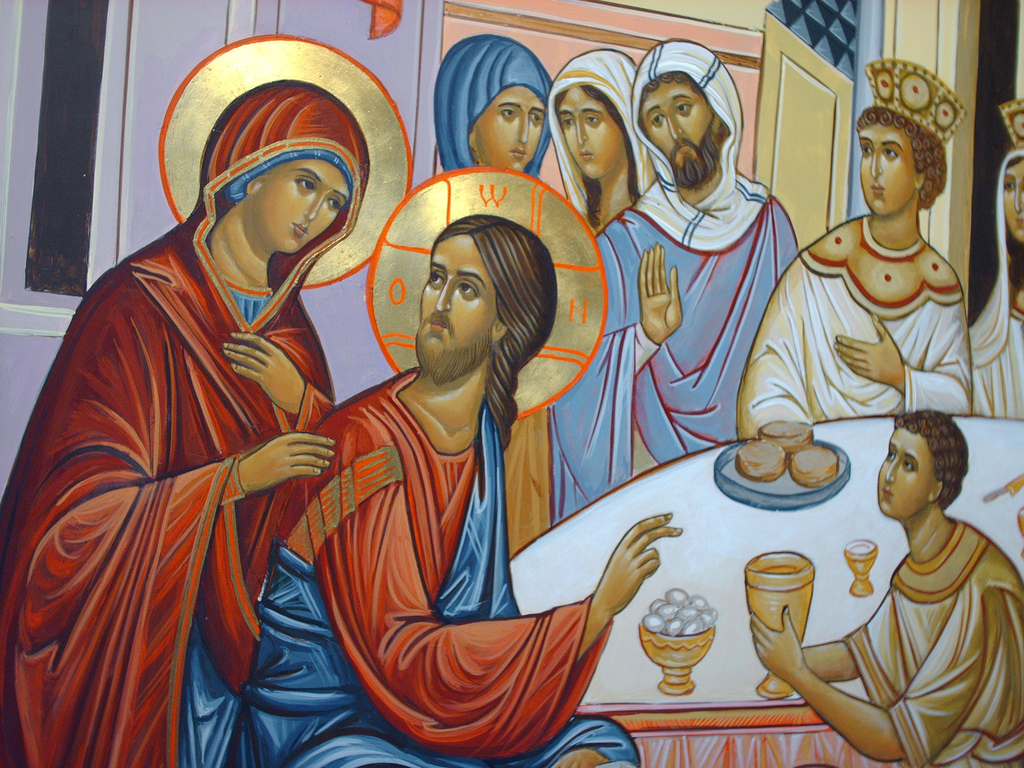Today’s readings remind us that a relationship with Our Lord is not optional in our lives if we truly want a fulfilled and complete life. A life without the Lord is ultimately a life without hope. What he taught, did, and experience in his life has ramifications for ours from here to eternity.
In today’s First Reading the prophet Jeremiah describes the importance of a relationship with the Lord in terms of favorable conditions for growth and unfavorable ones. Jeremiah condemns those who put their trust in human beings and the flesh and turn away from the Lord, but believers are not mistrusting people. What is he trying to say? The example of the barren bush teaches us that trust in human beings and the flesh at the expense of Our Lord is ultimately a withered life that just limps along and subsists as best it can, monotonous and agonizing. It is a dry and arid life, compounded by the fact that human beings and the flesh are ultimately mortal and finite. Even putting your trust exclusively in those things is futile in the end: you’ll be separated from others and from health by death. Putting your trust in the Lord changes your life dramatically: it doesn’t mean you or others won’t follow the earthly course of life and die, but it does mean that you’ll have a new source of life that weathers adversity, even the adversity of physical death, and is not only subsistence living, but thriving in this life and the next.
In today’s Second Reading Paul teaches us that a life without the Lord is ultimately a futile life, because a life with the Lord is a life redeemed and transformed by the Resurrection into a life of hope. Paul is shocked when he hears Christians are denying that the Resurrection happened. He teaches them that if Christ didn’t rise from the dead it would not just be bad news for Our Lord, but for all of us. If Our Lord didn’t rise from the dead, neither would we. If death had the last word, there would be no reason to hope. Why? What does Christ’s Resurrection have to do with us today and every day? Our Lord’s life is so fruitful, like the well-placed plant in today’s First Reading, that it gives life to all of us constantly, even eternally, if we let it. He is the “firstfruits” of those who have fallen asleep: we too, redeemed by him, will rise from the dead. However, that requires turning to him for redemption, and if Christ did not conquer death in the Resurrection, he did not conquer sin either, and we remain in a sinful life that is as finite, fleeting, and arid as the bleak desert bush of today’s First Reading. But Christ has risen from the dead, conquering sin and death not only for himself, but for those who believe in him. We now live a redeemed life hoping that one day he will raise us from the dead too.
In today’s Gospel we hear Luke’s account of the Beatitudes and the consequences of not only living them, but ignoring them. The well-placed plant in today’s First Reading stays green during heat waves and fruitful during droughts: it draws on a deeper source that is undiminished by adverse conditions. The Christian who draws from hope in Our Lord, hope in the promises he makes in the Beatitudes, draws from something undiminished by poverty, hunger, sorrow, or persecution. He knows that there are bad seasons and good ones in life, but a good harvest will ultimately come. Luke’s account also recalls Our Lord’s warning to those who would put their trust in other things, like the barren plant of today’s First Reading. Those who trust in riches, a full belly, a perpetual good time, and the flattery of others, separated from Our Lord, will find how fleeting and ultimately unsatisfying those things truly are in comparison to what Our Lord offers: a resilient life that thrives and blossoms in eternity.
Even in the spiritual life we can fall into routine and superficiality, but that’s because we stop making an effort to go deeper in our relationship with Our Lord. That enormous source of water described by Jeremiah today is the mystery of God. We can try to plumb its depths, but we never will. It never goes dry or gets stagnant. Dryness can occur in the spiritual life when Our Lord is trying to show us that we must go deeper in our relationship with him than mere sentimentality, than an empty stomach, a diminishing bank account, or sorrow. If we truly place our trust in him he will help us to spiritual grow with profundity.
Readings: Jeremiah 17:5–8; Psalm 1:1–4, 6; 1 Corinthians 15:12, 16–20; Luke 6:17, 20–26.


